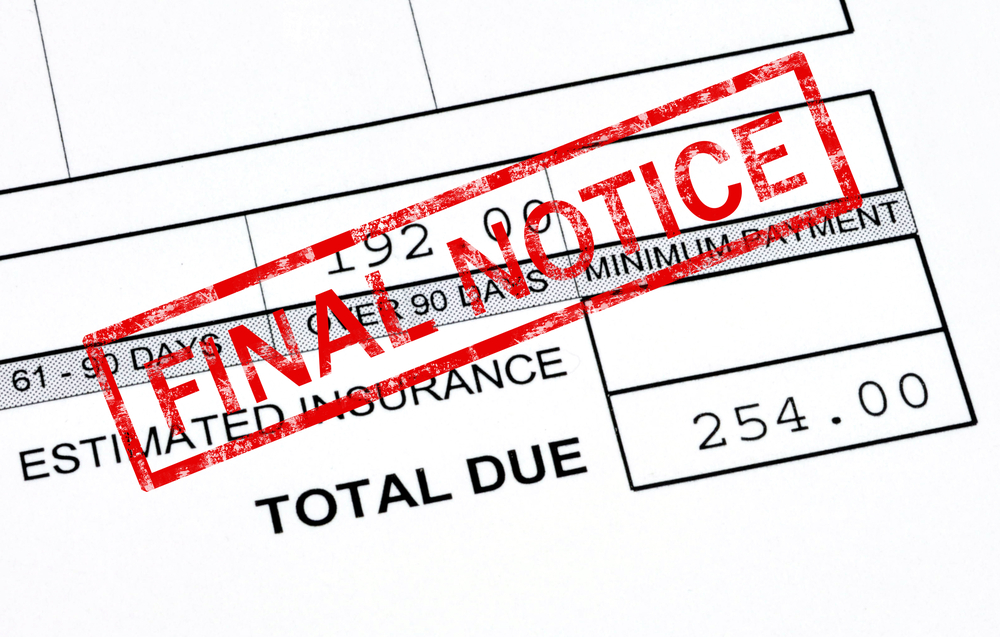Currently Not Collectible: How This Status on Your Tax Debt Can Protect You
- Feb 25, 2022
 When you’re faced with a tax debt you simply can’t afford to pay, you may feel as if you’ve been backed into a corner. Perhaps the IRS is pursuing a lien on your property or a levy on your bank accounts. Perhaps they’ve begun to garnish your wages. All of this can create serious financial difficulty if you’re already struggling to make ends meet. For those we owe the IRS but can’t pay due to their current financial situation, having the IRS place a Currently Not Collectible (CNC) status on your account can offer some relief.
When you’re faced with a tax debt you simply can’t afford to pay, you may feel as if you’ve been backed into a corner. Perhaps the IRS is pursuing a lien on your property or a levy on your bank accounts. Perhaps they’ve begun to garnish your wages. All of this can create serious financial difficulty if you’re already struggling to make ends meet. For those we owe the IRS but can’t pay due to their current financial situation, having the IRS place a Currently Not Collectible (CNC) status on your account can offer some relief.
What Is CNC Status?
When your account is in CNC status, the IRS will typically cease all collection attempts on your tax debt. This includes levies on your bank accounts, wage garnishment, and so on. This can prevent your tax debt from worsening an already-difficult financial situation, and provider debtors with much-needed breathing room to get their financial affairs in order.
However, it is important to note that a CNC status does not discharge your tax debt. You will still owe your taxes, and that debt will continue to accrue interest and penalties until it’s repaid. You’ll also continue to receive a tax bill from the IRS each year; this is required under federal law, and is not a collection attempt.
The one source of income the IRS will likely still retain when your account is in CNC status is your tax refund. If you qualify for a tax refund when you owe back taxes, regardless of whether or not your account is in CNC status, the IRS will keep your refund and apply it to your debt.
How to Apply for CNC Status
Currently Not Collectible status is typically only available to taxpayers who would experience severe financial distress if they were to pay their tax debt. You will need to prove to the IRS, via financial records and statements, that you simply can’t afford to pay both your taxes and your basic living expenses.
You can request that your account be placed in CNC status by contacting the number provided on your tax notice. We strongly recommend that, before you reach out to the IRS, you gather as much information as possible to verify your income, expenses, and any other debts you may have. You will likely need to provide this information to the IRS so they can decide whether or not you qualify.
When applying for CNC status, you’ll be required to do the following:
- File any past due tax returns
- Complete require forms, which may include Form 433-A, Form 433-F, and/or Form 433-B
- Provide documentation for items listed on your Collection Information Statements
- Continue to make estimated tax payments and federal tax deposits on time
What Happens If You’re Approved?
If the information you provide proves to the IRS that you cannot currently pay your tax debts, your account will be placed in CNC status. All immediate collection attempts should cease. This offers you the financial security to continue meeting your basic living expenses without fear that your bank account will be levied and emptied to pay your tax debt, or your paychecks will be significantly cut by wage garnishment.
However, please be aware that the IRS can still file a Notice of Federal Tax Lien on your property when your account is in CNC status. This is because a tax lien does not impact your immediate financial situation or your ability to pay for basic living expenses.
How Long Can You Stay in CNC Status?
The IRS will continuously assess your account and your finances to determine if and when you’re able to pay your tax debt. If your financial situation changes, they will lift the CNC status and resume collection actions. Should you receive a tax bill from the IRS, and you believe you’re still unable to pay your taxes and pay for basic necessities, you can contact them and provide updated financials to have the CNC status reinstated.
Collection attempts from the IRS should never be ignored, but we understand how burdensome they can be. The IRS Advocates can help you apply for CNC status to immediately cease collection attempts and give you the time you need to sort out other tax relief options. With collection actions on hold, we’ll guide you through the process of applying for IRS payment plans so you can truly settle your tax debt and get a fresh start.
STOP THE IRS!
Settle for less & Protect your assets
Never Call the IRS without Speaking with our Pros First!